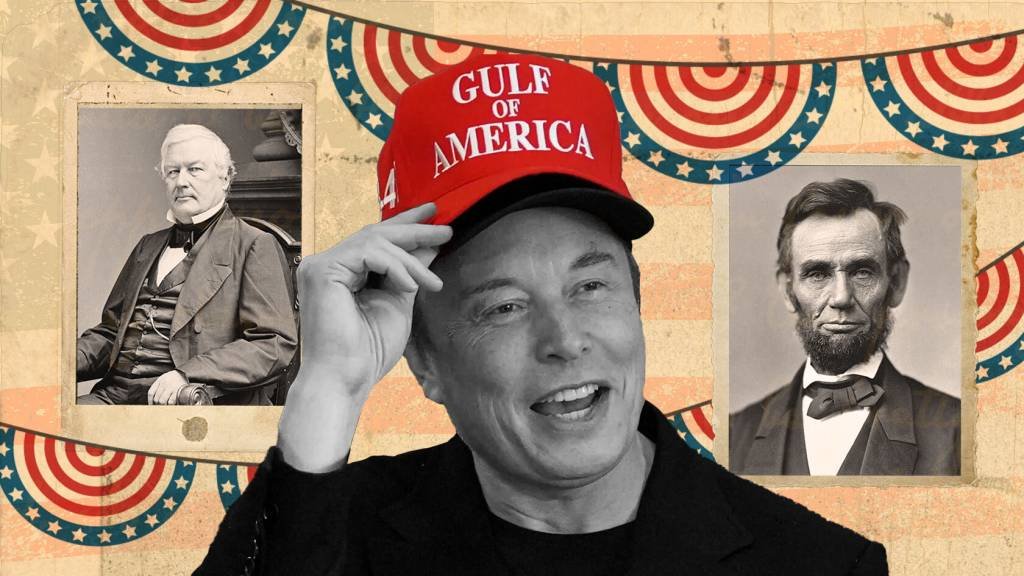Tech billionaire Elon Musk, struck with an increasingly pronounced case of buyer’s remorse, announced over the weekend that he was forming a new US political party.
“Today, the America Party is formed to give you back your freedom,” he posted on X, another one of those things he spent ludicrous amounts of money on, only for it to end up making him miserable.
Having asked his X followers whether he should start a political party, he posted, “By a factor of 2 to 1, you want a new political party and you shall have it!” Because of course, of course, political history is now determined by how well an online poll does.
Formed in the aftermath of his major falling out with US President Donald Trump over the recently passed massive spending legsitlation, “The Big, Beautiful Bill”, Musk hopes to gain the balance of power in the next midterms.
This is not the first time a populist third party has come about during a time of great anxiety over accelerating immigration, which allowed a conspiracy to bleed into mainstream politics that certain kinds of voters are being imported into the US to sway elections. It even had a near-identical name: the American Party.
After 1845, nearly 2 million people fled the engineered horrors of the Irish potato famine, around three-quarters of whom headed for the US. At the same time, German immigration jumped for a variety of reasons, including the repression that followed the revolution in 1848. These two groups, overwhelmingly Catholic, made up the vast majority of the surge in immigration to the US between 1840 and 1859 (4,242,000 up from roughly 660,000 for the previous two decades).
In this context, “nativism” — a belief that laws ought to favour the (white) US-born population to the exclusion of immigrants — emerged as a significant political force. The prejudices against these new arrivals are familiar: they were dissolute, prone to crime, and undercut the conditions of local workers.
But the biggest target was their faith. Under the influence of writing like Samuel Morse’s (yep, that Samuel Morse) 1835 polemic “Foreign conspiracy against the liberties of the United States”, a distinct, more ominous element entered the debate: the idea that there was a specific plot by international “Popery” to flood the US and rework its politics. A political cartoon from the early 1850s depicts Irish and German caricatures (it’d probably still get a run in the Herald Sun) “stealing” a ballot box.
The party that emerged to represent this sentiment was the American Party. Adding to the sense of conspiracy, members were admonished to reply “I know nothing” when asked about it, leading to a handy nickname: the Know-Nothings. Apart from stoking anti-Catholic grievance, the party was something of a populist pot-pourri that varied from state to state. Deeply anti-immigrant, they offered pro-worker policies and were internally split on the other major issue of the day: slavery.
In the mid-1850s, the party had a striking run of successes. Inheriting a great deal of the vote from the collapsing Whig Party, the Know-Nothings membership surged from 50,000 to more than 1 million, they ended up with 43 representatives in the House of Representatives elections in 1854-55, got Nathaniel P. Banks elected as speaker, and took control over several state governments and mayorships.
Around this time, Abraham Lincoln, a lawyer and former Illinois general assembly member who had recently failed to gain a nomination for a Senate seat with the crumbling Whigs, wrote despairingly to a friend about his political homelessness:
I am not a Know-Nothing. That is certain. How could I be? How can anyone who abhors the oppression of negroes be in favor of degrading classes of white people? Our progress in degeneracy appears to me to be pretty rapid. As a nation, we begin by declaring that ‘all men are created equal’. We now practically read it ‘all men are created equal, except negroes’. When the Know-Nothings get control, it will read ‘all men are created equal, except negroes, and foreigners, and Catholics’. When it comes to this I should prefer emigrating to some country where they make no pretence of loving liberty-to Russia, for instance, where despotism can be taken pure, and without the base alloy of hypocrisy.
And then, just as quickly, it collapsed.
The part endorsed a high-profile (but not particularly popular) candidate for the 1856 presidential election, former Whig president Millard Fillmore, who was the last US president (1850-53) to represent neither the Democrats nor Republicans. Millard promptly finished third behind Democratic winner James Buchanan and the first-ever Republican candidate, John C. Frémont.
From there, the fissures over slavery meant the party hemorrhaged anti-slavery members to the new Republicans, and the remaining pro-slavery rump was greatly diminished. By 1860, they were spent.
The phrase “Know-Nothing” became shorthand for a certain kind of insular, populist anti-immigrant politics. In 1968, Time labelled George Wallace “a neo-know-nothing”. It was noted that the Tea Party movement during the Obama era and the Know-Nothings shared “an emotional grammar: the fear of displacement”.
And, of course, the phrase was evoked many times in 2015 and 2016 to describe outsider Republican candidate Donald Trump.

